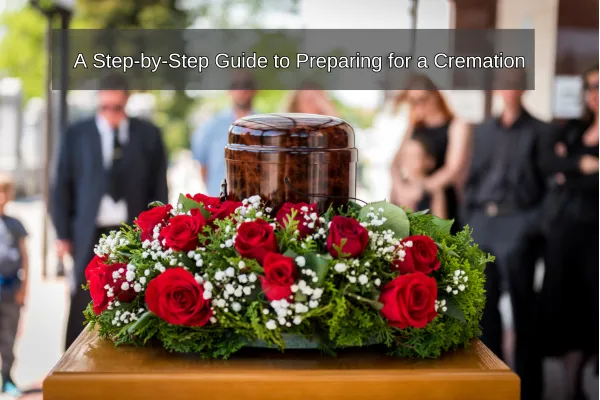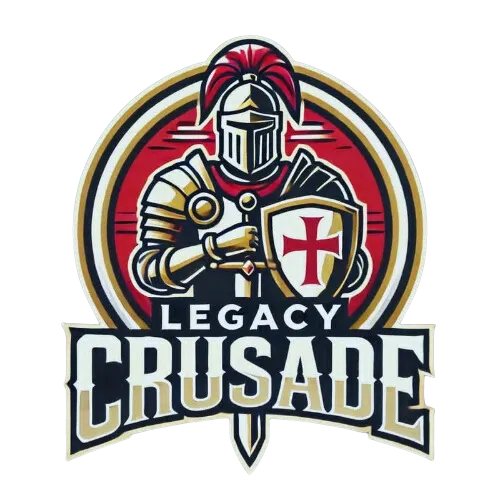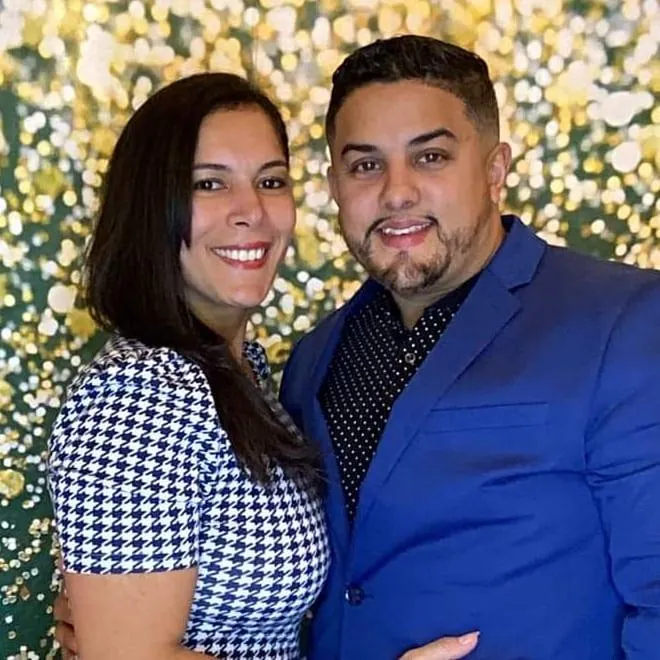Welcome to The Legacy Crusade Financial blog, your go-to resource for the latest industry news, insightful information, and educational content tailored for life insurance agents and individuals alike. Whether you're an agent looking to grow your expertise or someone seeking to understand how life insurance can secure your family's future, this blog is dedicated to empowering you with knowledge and tools to build and protect lasting legacies.

A Step-by-Step Guide to Preparing for a Cremation
A Step-by-Step Guide to Preparing for a Cremation
The loss of a loved one is always a difficult time, and planning a cremation service can be overwhelming. However, understanding the process and the steps involved can make it more manageable. Whether you are pre-planning or handling arrangements after a death, here is a simple guide to help you navigate the steps of cremation preparation.
1. Understand Cremation Laws and Regulations
Cremation laws vary depending on where you live, so it’s important to familiarize yourself with your local regulations. For instance, some states or regions have mandatory waiting periods after death before cremation can take place. Additionally, there may be requirements regarding permits and death certificates that must be filed with local authorities.
2. Choose a Funeral Home or Cremation Provider
Selecting a reliable funeral home or cremation provider is essential. Start by researching local providers, reading reviews, and asking for recommendations. Make sure to ask about their services, costs, and any packages they offer. Many funeral homes now offer cremation services, allowing you to coordinate the entire process in one place.
3. Decide Between Direct Cremation or a Service
You’ll need to decide whether you want a direct cremation or a cremation with a traditional service.
Direct cremation means the body is cremated without a funeral service beforehand. This option is typically less expensive and can be arranged quickly.
Cremation with a service involves holding a memorial or traditional funeral before the cremation. This can be a more personalized way to honor your loved one, giving friends and family an opportunity to say goodbye.
4. Arrange Necessary Paperwork
Before a cremation can take place, you'll need to complete some legal paperwork. This typically includes:
Death Certificate: You must file for a death certificate with your state’s vital records office.
Cremation Authorization Form: This form must be signed by the next of kin or legal representative to authorize the cremation.
Permits: Depending on your state, you may need additional permits to legally cremate a body.
The funeral home or cremation provider usually assists with these tasks.
5. Decide on the Cremation Container
Cremations require a container for the body. You can opt for a simple cremation container, which is usually made from a sturdy material like wood or cardboard. Many providers offer a range of options, including biodegradable containers for those looking for environmentally-friendly choices.
In some cases, families may also rent a traditional casket for a viewing or service prior to cremation.
6. Select an Urn or Final Resting Place
Once the cremation is complete, the ashes (or “cremains”) will be returned to you in a temporary container. You’ll need to decide on a permanent urn or other final resting place for the ashes. Options include:
Urn: A traditional way to store ashes at home or in a columbarium (a structure with niches for urns).
Scattering: Many families choose to scatter ashes in a meaningful location.
Burial: Some families bury ashes in a cemetery plot or memorial garden.
Keepsake Jewelry: Some companies offer jewelry that incorporates a small portion of the ashes.
7. Plan a Memorial or Celebration of Life
Even if you opt for direct cremation, you can still hold a memorial service at a later date. This allows family and friends to come together and honor the life of the deceased. Memorials can be personalized to reflect your loved one’s personality, values, and contributions.
Consider details such as:
The location of the memorial
Who will speak or share stories
Music, readings, or rituals that were important to the deceased
A photo or video slideshow
A memory book or place for guests to write notes or share stories
8. Notify Friends and Family
Once the cremation arrangements have been made, notify family members and close friends. If you’re planning a service or memorial, be sure to include the date, time, and location. Some families also choose to create online memorials, where people can leave condolences and share memories.
9. Consider Grief Support
Losing a loved one can be emotionally challenging. Don’t hesitate to reach out for grief support if you or others are struggling. Many funeral homes and cremation providers offer grief counseling or can refer you to local support groups.
Conclusion
Preparing for cremation can seem daunting, but breaking it down into clear steps helps ensure everything goes smoothly. Whether you're planning ahead for yourself or arranging the cremation of a loved one, understanding each stage of the process allows you to make informed decisions during a difficult time.
Download our FREE cremation checklist here
https://storage.googleapis.com/msgsndr/3g6Q4orsymXfOHG4Y4dA/media/67083ff3cd1904751708b47d.pdf
Feel free to contact Anthony or Veronica at the Legacy Crusade Financial for info on how to use life insurance to pay for cremation, burial, funeral or memorial.
Phone: 312.970.9540
Email: [email protected]

Get In Touch
Get In Touch

Anthony & Veronica Fernandez
Anthony & Veronica Fernandez
(312) 970-9540
(312) 970-9540
Chicagoland Area

